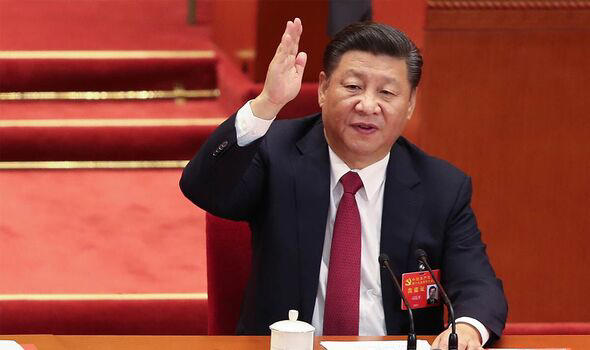China Debt Bailout: A Risky Gamble?
China’s recent announcement of a massive £1.1 trillion debt bailout has sent shockwaves through global financial markets. This bold move is aimed at propping up the country’s slowing economy, particularly in the face of escalating trade tensions with the United States.

© AP
A Closer Look at the Bailout
The bailout primarily targets local governments, which have accumulated significant debt over the years through infrastructure and real estate investments. By authorizing the issuance of new bonds, Beijing aims to restructure and consolidate these debts, reducing the burden on local authorities.
While this move may provide short-term relief, it raises concerns about the long-term sustainability of China’s economy. Some analysts argue that the bailout is a mere band-aid solution that fails to address the underlying structural issues.
The Hidden Costs of Debt
China’s debt problem is a complex issue with far-reaching implications. Excessive debt can stifle economic growth, increase the risk of financial instability, and erode government credibility.
The Impact on Global Markets
The Chinese debt bailout has the potential to impact global markets in several ways:
- Currency fluctuations: The renminbi, China’s currency, may experience volatility as investors assess the impact of the bailout on the country’s economic outlook.
- Commodity prices: China is a major consumer of commodities, and any slowdown in its economy could lead to lower demand and lower prices for commodities like oil, metals, and agricultural products.
- Global stock markets: The Chinese stock market is closely watched by global investors, and any significant market movements in China could have ripple effects on other markets.
A Risky Gamble or a Necessary Evil?
The Chinese government’s decision to embark on a massive debt bailout is a risky gamble. While it may provide temporary relief, it could also exacerbate long-term problems.
Ultimately, the success of the bailout will depend on a number of factors, including the effectiveness of debt restructuring, the ability of local governments to implement sustainable fiscal policies, and the global economic environment.
Key Takeaways:
- China’s £1.1 trillion debt bailout is a significant move to address the country’s debt problem.
- The bailout primarily targets local government debt and aims to restructure and consolidate these debts.
- While the bailout may provide short-term relief, it raises concerns about the long-term sustainability of China’s economy.
- The Chinese debt bailout has the potential to impact global markets, including currency fluctuations, commodity prices, and global stock markets.
- The success of the bailout will depend on a number of factors, including the effectiveness of debt restructuring, the ability of local governments to implement sustainable fiscal policies, and the global economic environment.
Only time will tell whether this bold move will pay off or lead to further economic challenges for China and the global economy.
Related:
Putin ICC Arrest Warrant: 3 Shocking Failures to Capture Him



